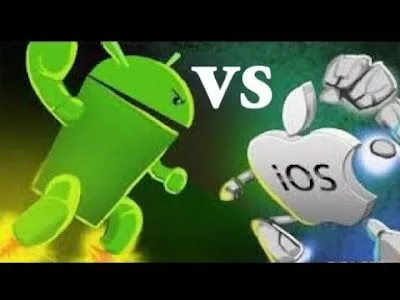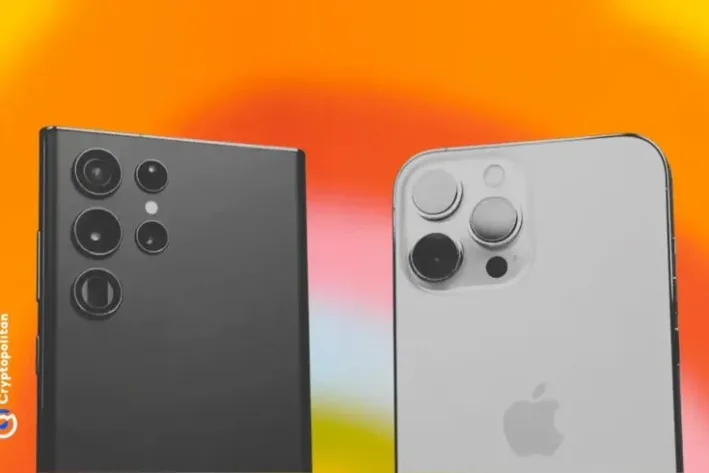- Home
- Technology
- Apple vs. Android: Which Ecosystem Is Better for 2024?

Apple vs. Android: Which Ecosystem Is Better for 2024?
The ongoing debate between Apple vs. Android continues to be one of the most talked-about topics in the tech world. As we move into 2024, both ecosystems have evolved significantly, offering more features, better performance, and enhanced user experiences. But the big question remains Apple vs. Android: which ecosystem is better for you in 2024? Let’s dive into the key differences and see how they stack up against each other.
User Interface and Experience
When it comes to user experience, both Apple and Android have their unique strengths. Apple’s iOS is known for its sleek, intuitive design and consistency across devices. Every Apple iPhone, iPad, and MacBook provides a seamless experience, with regular updates ensuring stability and security. In contrast, Android offers greater customization options. From the layout of your home screen to the way notifications are handled, Android gives users the freedom to personalize their devices.
For those who prefer simplicity and a uniform experience, iOS is the winner. However, if customization is important to you, Android will be a better choice.
App Ecosystem
The App Store and Google Play both offer millions of apps, but they differ in quality and availability. Apple has stricter guidelines for app development, which leads to fewer buggy apps and a more consistent user experience. On the other hand, Android’s Google Play Store has a more open approach, which results in a wider variety of apps, but also a higher chance of encountering lower-quality ones.
If you’re looking for a refined and stable app experience, Apple’s App Store is the better choice. However, if variety and the ability to sideload apps is what you need, Android excels.

Hardware Integration
One of Apple’s standout features is its hardware integration. The Apple ecosystem is tightly knit, meaning that iPhones, iPads, MacBooks, and even AirPods work flawlessly together. Features like Handoff, which lets you continue tasks between devices, and AirDrop for file sharing, make Apple’s ecosystem hard to beat.
While Android has made strides with its integration across devices like Chromebooks, Google Home, and Android Wear, it still doesn’t match the seamless connectivity Apple provides.
Customization
Customization has always been Android’s strong suit. From widgets to custom ROMs, Android users can personalize nearly every aspect of their device. Want to change the theme of your phone or install third-party launchers? Android allows you to do all that and more.
Apple, on the other hand, limits customization to some degree, focusing on a standardized user experience. While iOS has introduced features like widgets and some home screen flexibility, it still doesn’t offer the level of personalization that Android does.
Security and Privacy
When it comes to security and privacy, Apple is known for its stringent policies. With features like App Tracking Transparency, users have more control over their data and how it is used by third-party apps. Apple also regularly rolls out security updates to protect users from potential threats.
Android, while improving its security protocols, remains more vulnerable due to its open nature. The ability to download apps from third-party sources and the wide variety of manufacturers using Android can lead to inconsistent security measures.
For those who prioritize privacy and security, Apple is the clear leader.
Price and Affordability
One of the most significant differences between Apple and Android is price. Apple devices are generally more expensive, with flagship iPhones costing over $1,000. On the other hand, Android offers a wide range of devices at various price points, from budget smartphones to high-end flagships like the Samsung Galaxy series.
If you’re looking for an affordable device, Android provides far more options. However, if you’re willing to invest in premium hardware and a refined ecosystem, Apple is worth the extra cost.
Software Updates
Apple is known for its timely and consistent software updates. When a new version of iOS is released, it is available for all supported devices immediately, ensuring that even older models can benefit from the latest features and security patches.
Android, however, has a fragmented update system. While Google’s own devices like the Pixel receive updates quickly, other manufacturers often delay updates, meaning that not all Android users get the latest features at the same time.
For users who value timely updates, Apple offers a more reliable experience.
Which Ecosystem Is Better for 2024?
In conclusion, the decision between Apple vs. Android in 2024 largely depends on your personal preferences and priorities. If you value a polished, cohesive experience with seamless integration across devices, Apple remains the better choice. It excels in security, privacy, and a consistent user interface, though it comes at a higher price point.
On the other hand, Android offers flexibility, customization, and a wider range of devices to fit every budget. For users who enjoy tweaking their devices and don’t mind a bit of fragmentation, Android is the better option.
Both ecosystems have their strengths, and neither is inherently better than the other. Your choice should be based on your specific needs and how you use your devices.